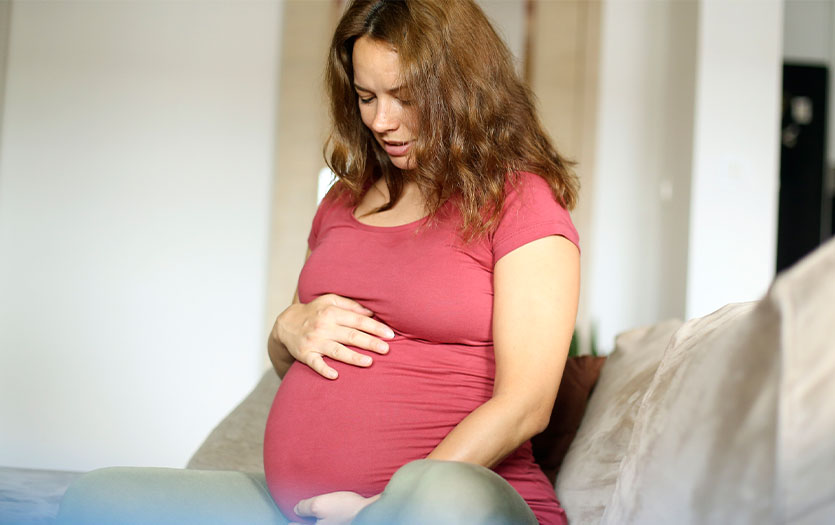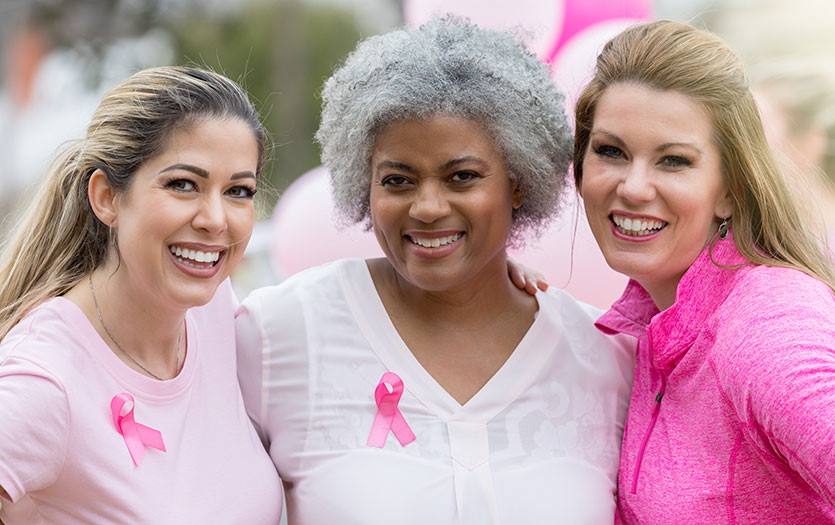
The third trimester marks the home stretch of your pregnancy as you get ready for the birth of your baby. Spanning from week 27 to week 40, during the third trimester your baby continues to grow in size and weight as your body prepares for delivery. This can be a challenging time—both physically and emotionally—but know that you’re almost there! Here are a few tips for taking care of yourself and preparing for baby’s arrival during the third trimester.
Ways to take care of yourself during your third trimester
Try to ease your heartburn
Pregnancy hormones relax the valve between your stomach and esophagus, which can lead to reflux and heartburn. To ease the burn, try:
- Avoiding foods that make your symptoms worse, such as chocolate, spicy foods and caffeine.
- Avoiding bending over or lying down after meals.
- Not eating for two hours before bedtime.
- Taking antacids, but don't take brands that have sodium bicarbonate, magnesium trisilicate or aspirin.
Prepare for baby to arrive
Learn about breastfeeding. Educate yourself on how to hold your baby to make breastfeeding easier and how to pump and store breastmilk.
- Learn why babies cry. They may be hungry; have gas; need a diaper change; or feel cold, warm, tired, lonely or tense. Sometimes they cry for unknown reasons. Here are tips for consoling baby.
- Know that crying is normal. It's common for babies to cry 1 to 3 hours a day. Some cry more, and some cry less.
- Think about what will help you stay calm when your baby cries. Taking slow, deep breaths can help. So can taking a break. It's okay to put your baby somewhere safe (like their crib) and walk away for a few minutes.
- Learn what to expect with newborn poop. Your baby will have their own bowel patterns. Some babies have several bowel movements a day and some have fewer. Breastfed babies often have loose, yellow bowel movements, while formula-fed babies have more formed stools. If your baby's poop looks like pellets, your baby is likely constipated.
Be kind to yourself
- Take breaks when you’re tired.
- Change positions often. Don’t sit for too long or stand for too long.
- At work, rest during breaks if you can. If you don’t get breaks, talk to your doctor about writing a letter to your employer to request them.
- Avoid fumes, chemicals and tobacco smoke.
Staying active in your third trimester
Exercise can have a lot of benefits when you’re pregnant including relieving back pain and swelling, helping you sleep better and improving your energy. Exercise also helps prepare your muscles for childbirth. Talk with your doctor about the kinds of activity you can do during your third trimester. You can be active as long as your doctor says it's okay.
Tips for third trimester exercise:
- If you've been doing heavy activities like running, talk to your doctor about whether it's safe for you to continue these activities. Lighter activities, like walking or swimming, are good choices too. Be cautious with any activity you do.
- If you feel tired, take it easy. Give yourself plenty of rest breaks.
- Listen to your body. Pay attention to changes in your body that mean it's time to slow down.
- Stop your activity if you feel any pain or discomfort.
- Drink plenty of fluids before, during and after exercise. Stop the exercise if you get too warm.
- Try to eat a small snack or drink juice before or after you exercise.
Doctors recommend that you avoid contact sports and scuba diving during all stages of pregnancy. Also avoid activities that can make your body too hot, such as hot yoga. After your fourth month of pregnancy, avoid exercises that require you to lie flat on your back on a hard surface. This includes sit-ups and some yoga poses.
Watch for signs of preterm labor
These signs include:
- Menstrual-like cramps or pain or pressure in your pelvis that happens in a pattern.
- About six or more contractions in an hour (even after rest and a glass of water).
- A low, dull backache that doesn't go away when you change positions.
- An increase or change in vaginal discharge.
- Light vaginal bleeding or spotting.
- Your water breaking.
Know what to do if you think you are having contractions
As you get closer to your due date, you might start to feel contracting sensations. Here are some general guidelines for expecting mothers experiencing contractions:
- Drink one or two glasses of water.
- Lie down on your left side for at least an hour.
- While on your side, feel the top of your belly to see if it's tight.
- Write down your contractions for an hour, timing how long it is from the start of one contraction to the start of the next.
- Call your doctor if you have regular contractions.
If, at any point in your third trimester, you have concerns or something doesn’t feel right, reach out to your certified nurse-midwife or obstetrician. They are there to help guide you through this journey safely.
Copyrighted material adapted with permission from Healthwise, Incorporated. This information does not replace the advice of a doctor.



